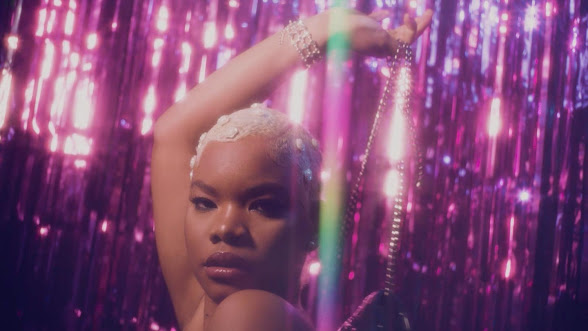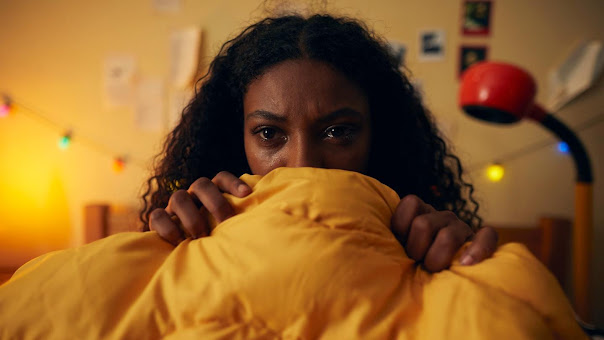Largely taking place around the ramshackle hut of the title, The Shed is a great example of a simple idea, done well. There's almost nothing offered in the way of backstory as to where the vampire in Stanley (Jay Jay Warren)'s shed has come from, just a short scene at the beginning where his neighbour Bane (a cameoing Frank Whaley) finds himself fleeing through the woods from the vampire that is about to bite him and in turn make him into a vampire. There's no explanation as to why any bloodsucker would end up in the woods of this small town, but really nor is one needed. Once Bane's been bitten and taken shelter from the sunlight in Stanley's Grandpa's shed, he stays there like a rabid pitbull in a kennel, protecting itself from anyone who dare stick their head in, dragging them into the darkness with him whilst occasionally throwing out the odd body part he doesn't want to eat.
There's a couple of films that The Shed liberally nods towards, and not just from the horror genre. Aside from a fairly blatant hat tip to Ferris Bueller's Day Off as Stanley sprints through his neighbours's back yards to try and beat the Sheriff to his house, the 80s teen movie this most recalls is director Tom Holland's Fright Night. Sure, the house next door is a lot smaller and the vampire here is nowhere near as snazzy a dresser as Chris Sarandon's Jerry Dandrige, but there's something about the relationship between Stanley and best friend Dommer (Cody Kostro) that reminds of Charley Brewster and Evil Ed; and if we can go as far as that film's 2011 remake, The Shed's leading man Jay Jay Warren does share a resemblance (and apparently a wardrobe) with its Charley Brewster, the greatly missed Anton Yelchin. The film largely rests on Warren's shoulders as the likeable but also generically bland rebellious teenager, as the rest of the cast either end up as vampire fodder (some deserved, some not), or like Roxy, don't really have a lot to do until the finale.
It's not without the odd occasion where the film feels like an elongated short story idea creaking at its limit, also bringing to mind another great 'My Pet Monster' scenario in the superb 'The Crate' sequence from George A. Romero & Stephen King's portmanteau horror Creepshow. That's a story that, had it been expanded into a feature film would have undoubtedly had a similarly lessened impact, but The Shed should be commended for its willingness to throw the odd curveball into the mix, namely some bizarre and unexpected dream sequences starting with an early fake out scene that abruptly dispenses with the picture of a happy family life it has painted in favour of Stanley's daily routine of bullying at the hands of his overbearing Grandpa Ellis (Timothy Bottoms).
The Shed is atmospheric enough to please genre fans looking for something new to sink their teeth into, and the sun drenched fields surrounding the primary location make for a nice visual departure from the vampire sub-genre tropes. The physical transformations of the vampire/s don't have a reliance on over the top CGI effects that, frankly, this film wouldn't have been able to afford anyway, instead favouring some decent make-up work and that old vampire mainstay, shadows and dim lighting. A low budget horror that sells its central premise very well, The Shed might not be the barnstormer it hopes to be but nor should it be confined to the dog house. Well worth checking out.
Verdict
3/5
Signature Entertainment presents The Shed on Digital HD from May 11th































